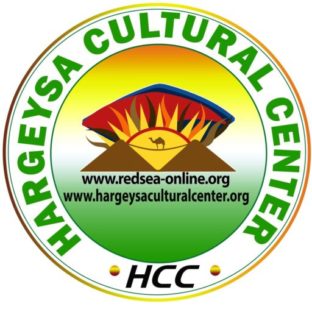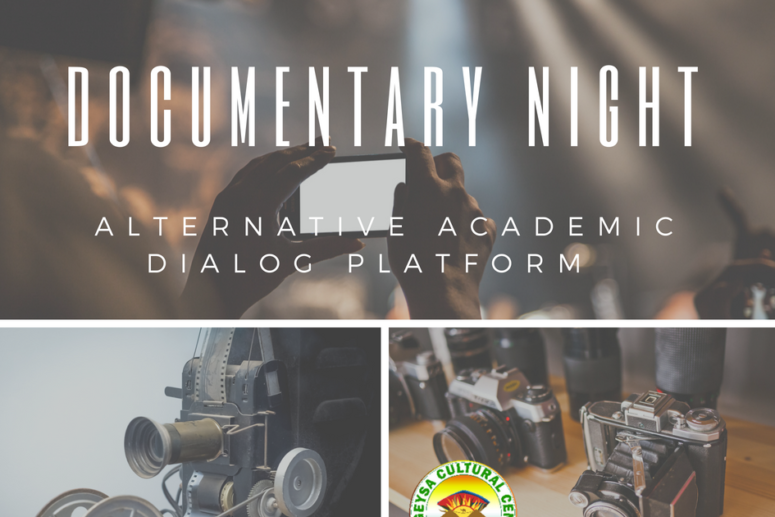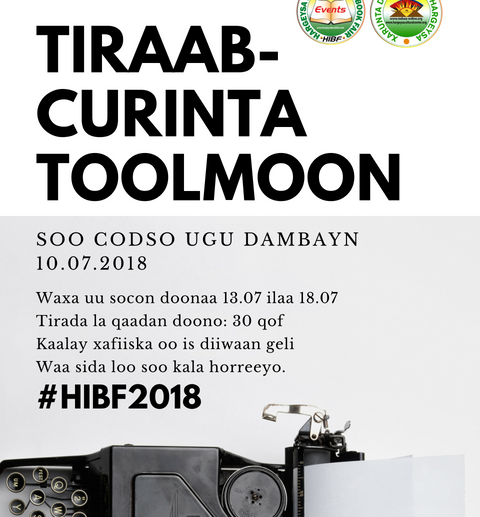Documentary Nights!
Alternative Academic Dialog Platform
Informative messages are packed in many different ways so as to make it well informing, interesting and out of the routine way of presentation. The growing diversification of these means of academic communication channels has proven to be successful in all aspects of human communication. It is in light of this understanding that the Academic Dialog In Hargeysa (ADIH) has set the last Wednesday of every month to be Documentary Night at Hargeisa Cultural Center. This is set as an alternative way of academic discussion the center runs every Wednesdays mainly for PhD presentations that brings PhD researchers and scholars together to share area of studies, methodologies and provide concrete suggestions for the betterment of the academic research conducted in the region.
The Documentary Nights are however different not only in way of presentation but also in terms of attendants since it is an open event that invites the general public to take part in the screening and afterward discussions. Just like the main stream presentation of PhD works that has connected, assisted and provided concrete way forwards to researchers, the documentary screening also has gained prominence and has expanded the outreach of the call for academic discussions in Hargeysa as the number of participants is increasing as the days goes by. The team behind the selection of the documentaries to be screened has made sure to keep truck of developments in the region along with the international relevance of the stories behind each documentary which sustained the event and managed to increase the participants.
The first documentary screened was the documentary film directed by Iara Lee, “K2 and the invisible footmen” which focuses on Pakistani traditional heroes of mountaineering. Amid breathtaking scenery, the film depicts the everyday sacrifices of porters and the courage of those indigenous climbers who choose to return to scale K2 in spite of past tragedies. In their striving to perfect their craft, these mountaineers provide a fresh look into the cultures and national traditions of Pakistan, a country typically portrayed in the foreign media as merely a land of conflict and sectarian strife. The aim with this documentary for Somaliland audience is in every small looking activities Somalilanders are performing, the chance that art and culture could be a tool for positive image building is the underling message.
Following this we have had several other documentaries of her under the theme of Cultures of Resistance that has art, culture and creativity for addressing the desire for change in different communities. Using her enquiry ‘Does each gesture really make a difference? Can music and dance be weapons of peace?’ In 2003, on the eve of the Iraq war, director Iara Lee embarked on a journey to better understand a world increasingly embroiled in conflict and, as she saw it, heading for self-destruction. Hence she recorded stories from IRAN, where graffiti and rap became tools in fighting government repression, to BURMA, where monks acting in the tradition of Gandhi take on a dictatorship, moving on to BRAZIL, where musicians reach out to slum kids and transform guns into guitars, and ending in PALESTINIAN refugee camps in LEBANON, where photography, music, and film have given a voice to those rarely heard, CULTURES OF RESISTANCE explores how art and creativity can be ammunition in the battle for peace and justice”. In addition to this, we were the first to screen Burkinabè Rising, the new documentary from Cultures of Resistance Films that showcases creative nonviolent resistance in Burkina Faso, a small, landlocked country in West Africa, which is home to a vibrant community of artists and engaged citizens, who provide an example of the type of political change that can be achieved when people come together. It is an inspiration, not only to the rest of Africa but also to the rest of the world.
Through music, film, ecology, visual art, and architecture, the people featured in this film are carrying on the revolutionary spirit of Thomas Sankara. In addition to profiling individual artists, Burkinabè Rising documents a festival of recycled art and interviews groups of farmers who are standing up to the encroachment of corporate agriculture. Displaying a panorama of creative resistance, the film shows how the resurgent Burkinabè pursuit of peace and justice manifests itself through cultural expression, permeating every aspect of daily life.
The biography of Malcom x with a very different perspective from what has always been talked about him; civic right advocate but the one that has shown how he has played in the history of Islam is another key documentary screened where by attendants expressed their amusement and surprise long with the relevance.
On 21 February 1965, Malcolm X was shot dead minutes before he was about to address a rally in Harlem, New York. As with the firebombing of his home a week earlier, the finger was automatically pointed at the Nation of Islam with whom Malcolm had split the previous year.
The assassination of Malcolm X spawned the Black Panther Party, and organization that represented the highest point in the civil rights movement that engulfed the US for over two decades. They took Malcolm’s message of self-defense for blacks and translated it into action. During the 1970s they became a focal point for young blacks wanting to fight back against the racist police and state in America. They inspired youth and blacks internationally with their preparedness to fight racism and police brutality. In cycle of autobiography documentary films, the ADIH team is suggestion a reflection on the life and the legacy of Malcom X, and ask –mainly young people in Somaliland- what we can learn today from the legacy of such a great leader.
Upholding its relevance and popularity the next documentary screened by Hargeysa Cultural Centre was The Corporation which is a 2003 Canadian documentary film written by University of British Columbia law professor Joel Bakan, and directed by Mark Achbar and Jennifer Abbott, that examines the modern-day corporation. The documentary was screened considering the move by China and other major Asian business corporations are competing to grab the land and to secure exclusive businesses ownership in Africa, and the African governments have no economic power, and sometimes necessary expertize, to negotiate properly. The question was how this “Pathological Pursuit of Profit and Power” can be contained while making the necessary progress in Africa? The documentary tries to give this answer to what happened in the Western countries, in particularly in the USA. What Africa can learn from this experience? Was the main talk point of the discussion that dwelt on how the multimillion companies deceive, deprive and manipulate system only to serve their interest by setting aside the Social responsibility they are expected is the longest but the most interesting documentary we have screened too.
The last for the time but the least for much more documentaries to come is ‘Stealing A Nation’ which is an extraordinary film about the plight of the Chagos Islands, whose indigenous population was secretly and brutally expelled by British Governments in the late 1960s and early 1970s to make way for an American military base.
The tragedy, which falls within the remit of the International Criminal Court as “a crime against humanity”, is told by Islanders who were dumped in the slums of Mauritius and by British officials who left behind a damning trail of Foreign Office documents.
Before the Americans came, more than 2,000 people lived on the islands in the Indian Ocean, many with roots back to the late 18th century. There were thriving villages, a school, a hospital, a church, a railway and an undisturbed way of life. The islands were, and still are, a British crown colony. In the 1960s, the government of Harold Wilson struck a secret deal with the United States to hand over the main island of Diego Garcia. The Americans demanded that the surrounding islands be “swept” and “sanitized”. Unknown to Parliament and to the US Congress and in breach of the United Nations Charter, the British Government plotted with Washington to expel the entire population.
‘Stealing A Nation’ was a Granada production for ITV. It was first broadcast on ITV1, 6 October 2004. Directors: John Pilger and Chris Martin. Producer: Chris Martin. the Stealing a nation documentary of the uppermost ignorant and abusive arrangement ever made that has wiped out a whole community from their own land just to serve the interest of the USA military base desire is a knocking thought that most significantly considering the situation we are experiencing in Africa most importantly in the horn of Africa. Djibouti being a battle field for military base desire of the super powers from each corner and the emergence of Somaliland in the port and military base sharing space is what triggered the desire to screen the documentary which clearly served the interest. The participants’ reflection on all the documentaries screened is magnificent as it has opened a heated debate every time we have it. the bilingual language use system we employ on this open conversation day (Somali and English) also has served the purpose of including everyone that attended the screening and be able to express their understanding and questions to be discussed together without language limitation.
This way the academic discussion with a different platform has managed to attain its objective of creating a platform where academic discussion with a well-founded data is developed here in Somaliland.



